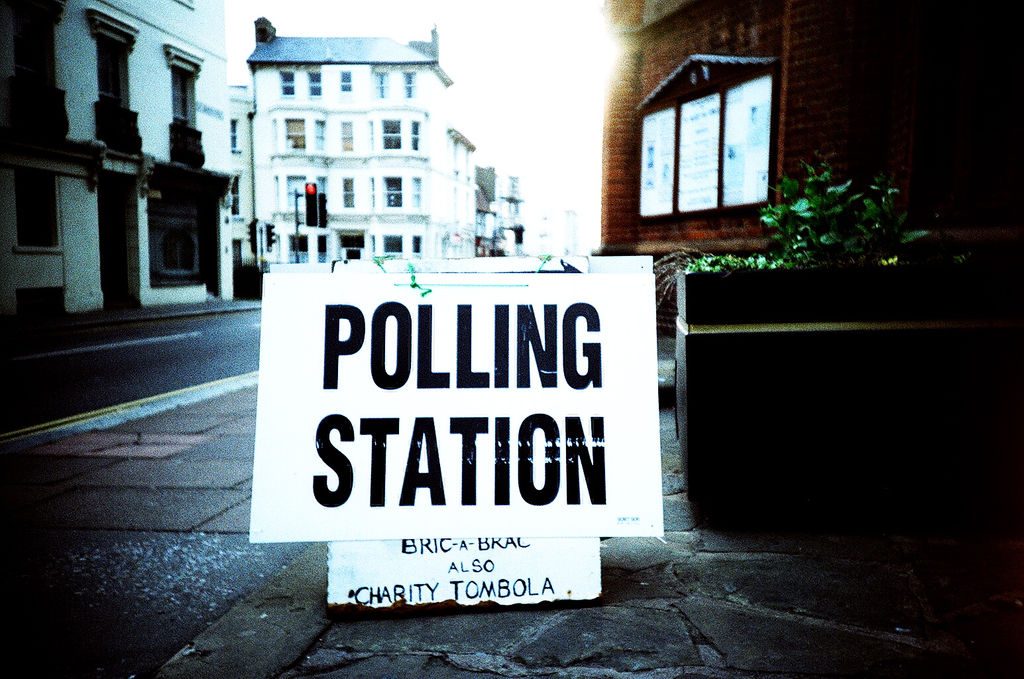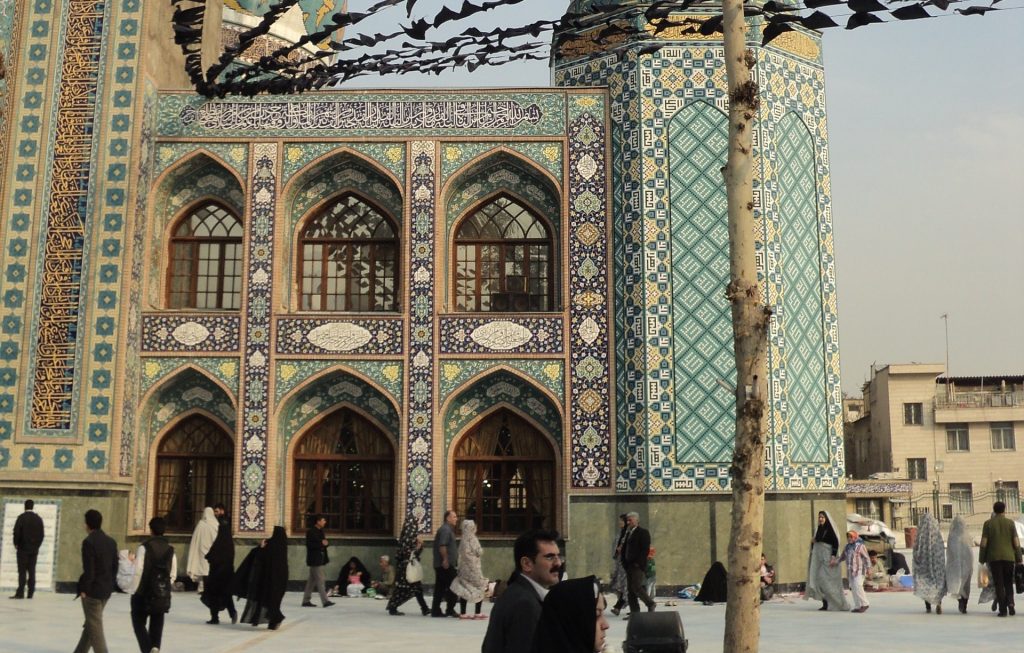“Voting is the right on which all other rights depend.” So said 18th century writer and activist Thomas Paine, who is widely considered the father of the American revolution.
His words are still relevant today. The flouting of democracy not only breaches our right to participate in society, but removes political accountability, paving the way for other human rights violations. Voting, therefore, is vitally important.
However, voting is only an authentic right where elections are conducted freely and fairly. The controversies of 2016 demonstrate this: Russia elected its prime minister against a backdrop of ballot-stuffing; the US election was allegedly influenced by hackers and peddlers of fake news; Serbia chose its president in a censored media landscape; and citizens of the Democratic Republic of Congo saw elections delayed due to so-called administrative reasons.
This is why rules surrounding elections, far from being dry technicalities, are integral to our right to vote.
The human right to vote

Featured Image: Stuart Boreham/Flickr
Enshrined in the Human Rights Convention is the right to participate in free and fair elections.
The right, set out at Article 3 of the First Protocol to the Convention, requires UK governments to regularly hold fair and free elections, granting the public a say in the makeup of Parliament and the choice of government. Elections must be held ‘by secret ballot, under conditions which will ensure the free expression of the opinion of the people.’
The government can restrict voting rights in certain circumstances, but only if they can show it’s proportionate to do so. In the case of Hirst v United Kingdom, the Human Rights Court found that the UK’s blanket ban on prisoner voting was unlawful.
The right to free and fair elections also covers a person’s right to stand for election, and any rules on eligibility must contain sufficient safeguards to prevent unfair decisions.
As well as being protected by the Human Rights Convention, citizens’ right to vote is enshrined in the Universal Declaration of Human Rights. It’s recognised in our national laws too, the earliest of which dates back to 1275.
Here are three ‘rules of the game’, which have been developed to ensure that elections in the UK are fair, and that our right to vote is an authentic one.
Election Rule One: Purdah
 “Purdah” – the Persian word for curtain or veil – refers to the pre-election period, when strict rules govern the activities of those working in central and local government.
“Purdah” – the Persian word for curtain or veil – refers to the pre-election period, when strict rules govern the activities of those working in central and local government.
While the essential business of government carries on in the run-up to an election, civil servants are not allowed to use official resources to assist political parties. This means they can’t develop or cost policies for use in election campaigns, nor begin work on long-term initiatives, which a future government might object to.
As well as requiring workers to down tools, purdah applies to all government media communications. Officials must avoid publishing content that may influence voters, or be seen as affecting support for any party.
Purdah preserves the reputation of the civil service as an impartial body and ensures that all political parties have a level playing field when it comes to developing and promoting their election policies. Without these rules, the field would be skewed in favour of the party currently in government, undermining the fairness of any election.
Election Rule Two: Financial Caps
Responsibility for overseeing the fair administration of UK elections lies with the Electoral Commission, an independent body.
As well as handling the practicalities involved (voter registration, polling methods and the all-important counting of the votes), the Electoral Commission regulates the amount of money that each political party, and individual candidates, can use in an election.
The thinking behind this is clear: a contest between parties with different financial means can’t possibly be fair. Victory would likely go to the party with the deepest pockets, rather than the best policies. In support of the current rules, commentators often point to the American political system, where the amount a presidential candidate fundraises is often a determining factor behind his or her success.
In the UK, campaign spending – money used to directly promote a party or tactically undermine another – is therefore capped in the year leading up to a general election. The total figure allowed varies: for a party, it’s the greater of a specified amount (£810,000 in England) or £30,000 multiplied by the number of seats being contested. Confused?
That’s hardly surprising. The complexity of the rules has led to criticism that the distinction between local and national campaigning (each attracts a different financial cap) is murky. In March, the Electoral Commission fined the Conservatives £70,000 for failing to report all of the party’s expenditure on local campaigning in the 2015 general election. The Tories argued that their ‘battlebus’ campaign was nationally-coordinated and had national branding, rather than being a part of local campaigning, but the Electoral Commission disagreed.
The scandal, which will not lead to criminal prosecutions, demonstrates how transparency is an integral part of fair elections.
Election Rule 3: Balanced Broadcasting
 Picture: Amelia Beamish / Flickr
Picture: Amelia Beamish / Flickr
National legislation requires broadcasters in the UK to follow a Code of practice laid down by the regulator Ofcom, to ensure that its coverage of candidates is accurate and impartial. This is in stark contrast to the UK’s printed press, which has traditionally adopted a partisan approach to politics.
The Code, which acts as a barometer for editorial decisions, requires an appropriate balance to be achieved between the various candidates. This doesn’t necessitate allotting an equal amount of airtime to representatives of each party. Rather, coverage should depend on candidates’ electoral strength – meaning that Labour will receive more publicity than, say, the Green Party or Plaid Cymru, the Welsh independence party.
Following recent changes to the Code, this principle applies to party election broadcasts – campaign recordings made by political parties and transmitted over television or radio – as well as to other coverage, for example, news analysis and interviews. As of April this year, the BBC is also subject to these rules.
Broadcasting coverage, particularly televised leaders’ debates and interrogative interviews, can heavily influence how we decide to cast our votes in an election.
On the simplest level, giving substantial airtime to one party risks drowning out the voices of opposing ones, effectively depriving voters of a choice. On a more subtle level, candidates’ performance during high-profile coverage can be the swing factor for voters. Take the ‘Cleggmania’ that followed Nick Clegg’s appearance on the first televised leaders’ debate in 2010. This was accompanied by crucial party gains in the general election, which catapulted the Liberal Democrats into coalition government.
Impartiality is therefore essential to ensuring a level playing field.
Can more be done?
 Advancements in technology, including the boom of social media, mean that voters have access to an unprecedented amount of information and new platforms on which to debate politics. Where this makes voters more informed and engaged, it should be celebrated.
Advancements in technology, including the boom of social media, mean that voters have access to an unprecedented amount of information and new platforms on which to debate politics. Where this makes voters more informed and engaged, it should be celebrated.
However, this content is currently unregulated, and fake news and dubious leaks can spread far and wide. This was seen in last year’s US election, and has also clouded the recent French election. If people cast votes on the basis of inaccurate information, the human right to a fair election is undermined.
As well as tackling the fake news phenomenon, more can be done to enforce the existing rules of play. Broadcasting fairness is not a given in the UK – the BBC’s flagship programme Question Time recently came under fire for allowing UKIP a disproportionate amount of airtime compared to the party’s level of representation in Parliament. Nor do we have complete financial transparency, as the recent Conservative expenses scandal shows.
The enforcement of these rules is crucial to preserving our right to a meaningful vote.
Want to know more about this kind of stuff? We’ve put together a load of resources on the General Election!
- Here’s our explainer on just how elections, voting and human rights fit together
- We’ve also got a beautiful infographic on the right to vote






